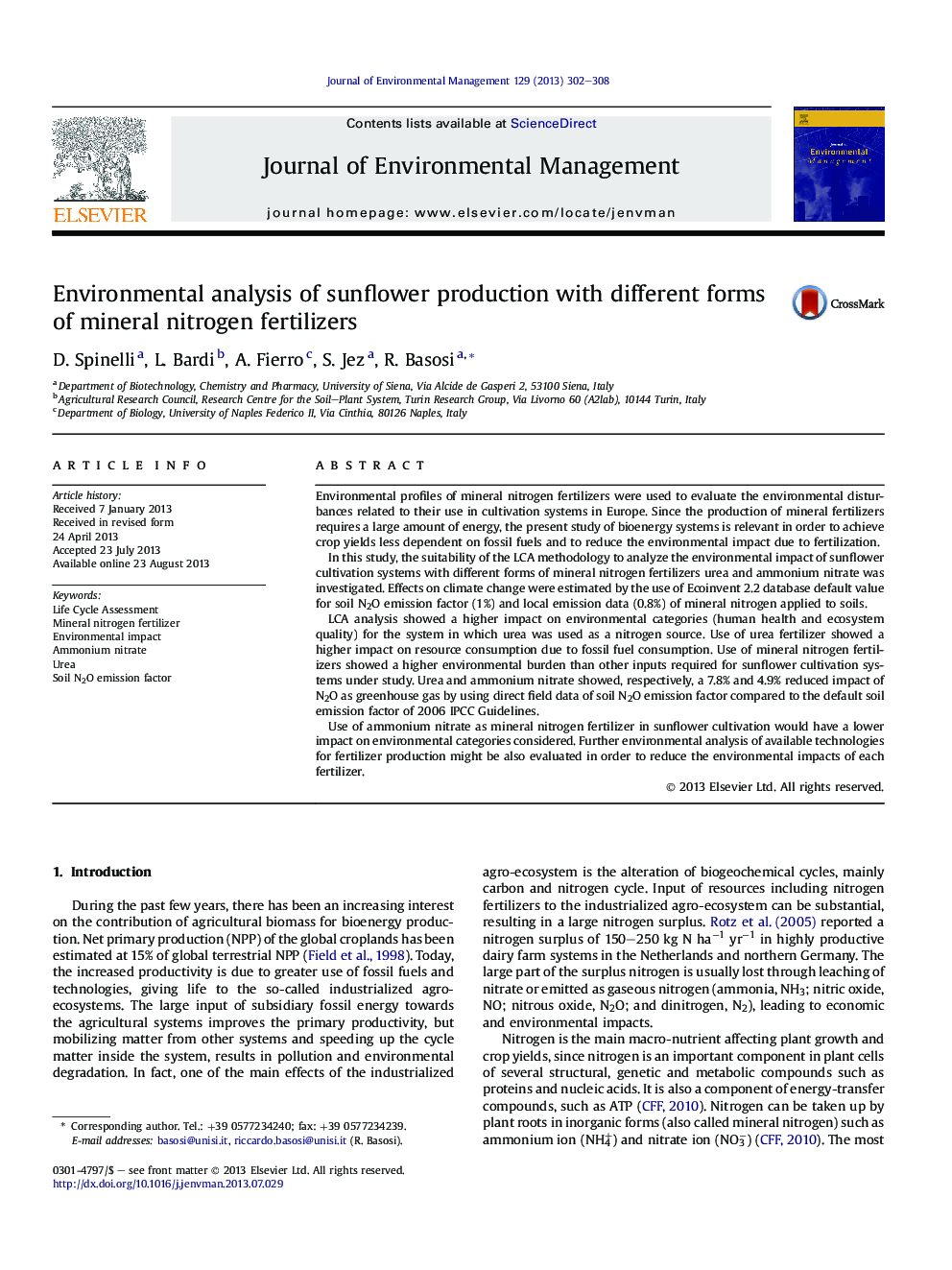| Article ID | Journal | Published Year | Pages | File Type |
|---|---|---|---|---|
| 1056172 | Journal of Environmental Management | 2013 | 7 Pages |
•Environmental impact of sunflower production systems was analyzed by LCA.•Highest impact for all systems was due to the use of mineral fertilizers.•Use of ammonium nitrate compared to urea would have a lower environmental impact.•Default and local data of soil N2O emission were used for climate change effect.•Fertilizers showed the lowest climate change effect with field data of N2O emission.
Environmental profiles of mineral nitrogen fertilizers were used to evaluate the environmental disturbances related to their use in cultivation systems in Europe. Since the production of mineral fertilizers requires a large amount of energy, the present study of bioenergy systems is relevant in order to achieve crop yields less dependent on fossil fuels and to reduce the environmental impact due to fertilization.In this study, the suitability of the LCA methodology to analyze the environmental impact of sunflower cultivation systems with different forms of mineral nitrogen fertilizers urea and ammonium nitrate was investigated. Effects on climate change were estimated by the use of Ecoinvent 2.2 database default value for soil N2O emission factor (1%) and local emission data (0.8%) of mineral nitrogen applied to soils.LCA analysis showed a higher impact on environmental categories (human health and ecosystem quality) for the system in which urea was used as a nitrogen source. Use of urea fertilizer showed a higher impact on resource consumption due to fossil fuel consumption. Use of mineral nitrogen fertilizers showed a higher environmental burden than other inputs required for sunflower cultivation systems under study. Urea and ammonium nitrate showed, respectively, a 7.8% and 4.9% reduced impact of N2O as greenhouse gas by using direct field data of soil N2O emission factor compared to the default soil emission factor of 2006 IPCC Guidelines.Use of ammonium nitrate as mineral nitrogen fertilizer in sunflower cultivation would have a lower impact on environmental categories considered. Further environmental analysis of available technologies for fertilizer production might be also evaluated in order to reduce the environmental impacts of each fertilizer.
